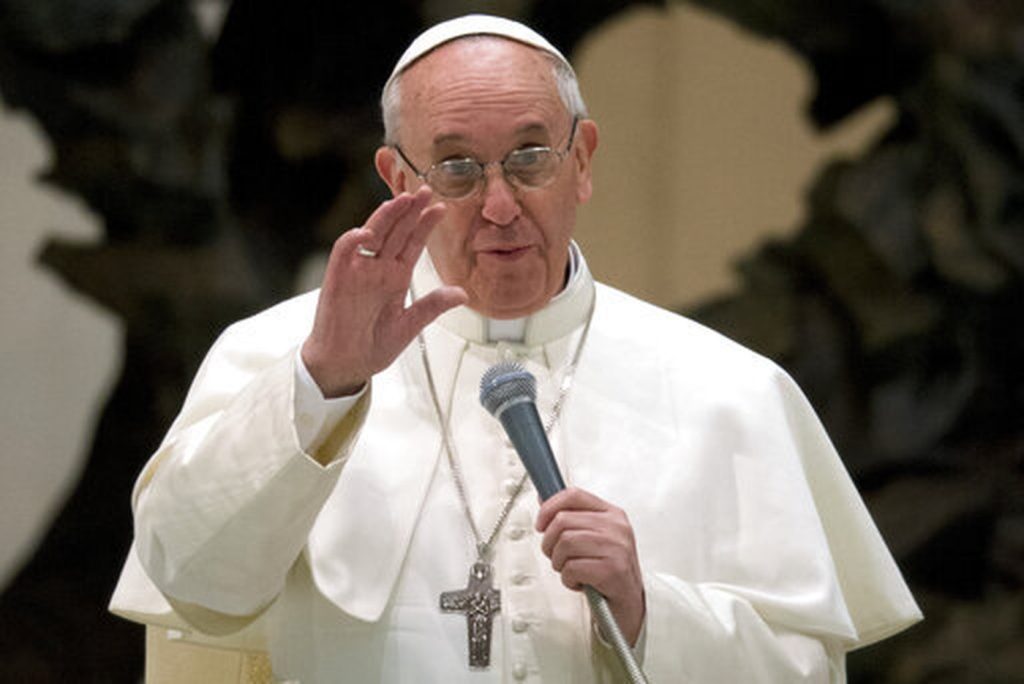VATICAN CITY (AP) - Pope Francis, who passed away on Monday, was well-known for his informal and lighthearted speaking style. His unique ability to blend his native Spanish with Italian sometimes resulted in the creation of new words, which became a hallmark of his communication. Throughout his papacy, he delivered numerous memorable quotes that resonated with many, reflecting his views on poverty, mercy, and social issues.
One of his most notable quotes was from his first address after being elected pontiff on March 13, 2013. He greeted the crowd from the loggia of St. Peter's Basilica, saying, "Brothers and sisters, good evening!" This simple opening reflected his approachable demeanor right from the start of his papacy.
Pope Francis frequently emphasized the importance of caring for the poor. During a conversation with journalists on March 16, 2013, he recounted how Cardinal Claudio Hummes inspired him to choose the name Francis, saying, "Don’t forget the poor!" He expressed a longing for a Church that is "poor and for the poor," underlining his commitment to social justice and compassion.
In his First Angelus prayer on March 17, 2013, he spoke of mercy, stating, "Feeling 'mercy,' this word changes everything. It’s the best thing we can feel: It changes the world." This encapsulated his belief that small acts of mercy could lead to significant societal change, making the world "less cold and more just."
His sense of brotherhood was evident in his meetings with others, including Emeritus Pope Benedict XVI. Upon their first meeting at Castel Gandolfo on March 23, 2013, he reaffirmed their connection by stating, "We are brothers." This sentiment was echoed in his meeting with Patriarch Kirill of the Russian Orthodox Church on February 13, 2016, where he reiterated, "We are brothers," exemplifying his dedication to fostering interfaith dialogue.
Pope Francis also made headlines for promoting inclusivity, famously responding to a question about a purportedly gay priest on July 28, 2013, with the phrase, "Who am I to judge?" This statement set a tone for a more welcoming approach towards LGBTQ+ Catholics during his papacy.
On theological matters, he addressed the sacraments in his encyclical "Amoris Laetitia" on April 8, 2016, saying that confession should not be a "torture chamber" but rather an "encounter with the Lord's mercy." He described the Eucharist as "not a prize for the perfect, but a powerful medicine and nourishment for the weak," emphasizing the importance of accessibility in the faith.
His commitment to dialogue extended beyond theology. Upon meeting Sheikh Ahmed al-Tayeb, the grand imam of Al-Azhar, on May 23, 2016, he asserted, "The meeting is the message," signifying the importance of communication between different faiths to bridge divides.
Pope Francis displayed a sense of humor and resilience in the face of criticism, remarking on September 4, 2019, that "It's an honor if the Americans attack me," in reference to backlash from conservative circles in the United States.
Amid the global pandemic, he expressed solidarity in a prayer on March 27, 2020, stating, "We have realized that we are on the same boat," urging individuals to support one another during difficult times.
His tenure also included a formal apology for the Church's role in the abuses faced by Indigenous peoples in residential schools in Canada. On July 25, 2022, he voiced remorse, saying, "I am sorry. I ask forgiveness," acknowledging the failings of the Church in facing historical injustices.
Lastly, reflecting on his native Argentina in an interview on January 24, 2023, he humorously remarked on the complexities of wealth distribution, highlighting a balance of divine humor in the nation's circumstances.
In another significant statement during the same interview, he declared, "Being homosexual is not a crime," expressing a need for understanding against the backdrop of global discrimination faced by LGBTQ+ individuals.
Pope Francis's words and actions throughout his papacy showcased his commitment to mercy, inclusivity, and dialogue. His legacy as a leader who tried to address modern challenges while remaining rooted in compassion will continue to resonate in the years to come.











